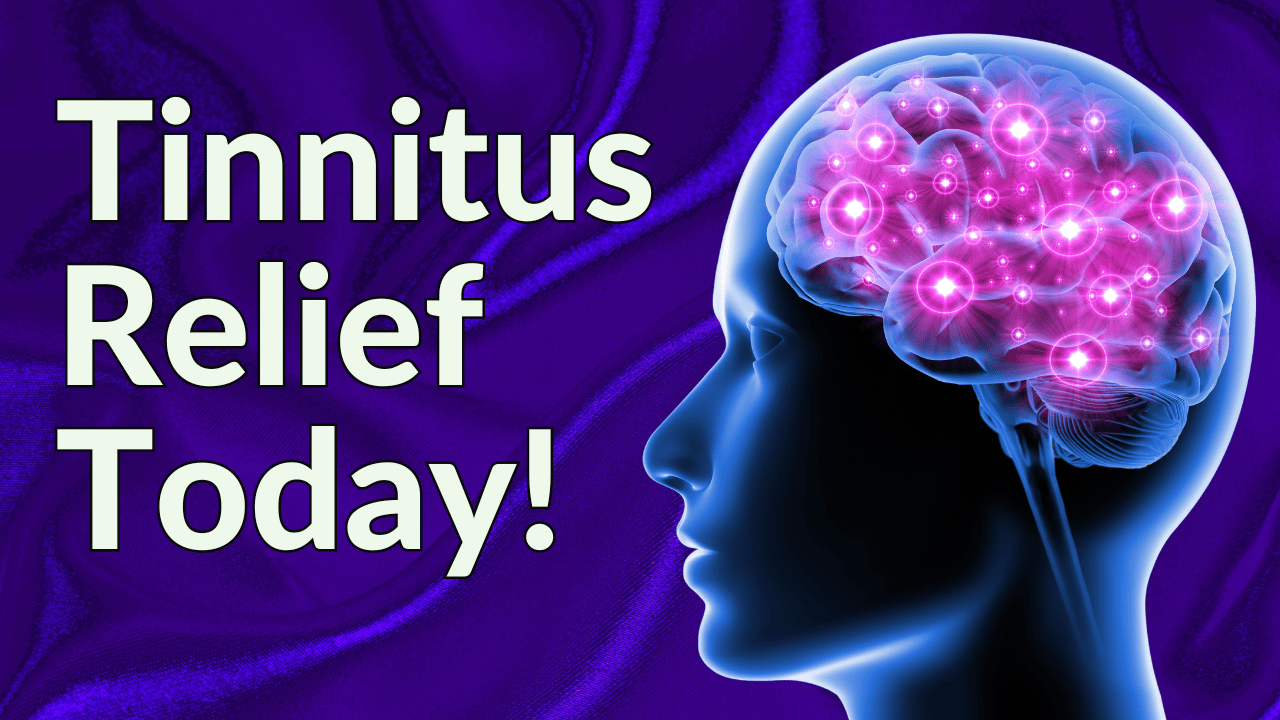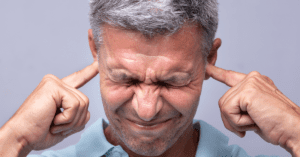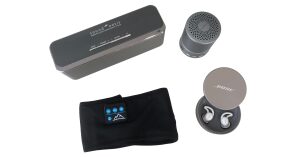Meniere’s disease is a disorder of the inner ear that affects hearing and balance, and can lead to severe bouts of dizziness and hearing loss. Typically only affecting one ear, the condition usually starts in young and middle-aged adulthood, with symptoms that can occur without warning and go dormant just as quickly. While Meniere’s is a chronic condition, there are plenty of management options to help ease symptoms.
And before we dive into the details, it’s important to note that sometimes – and inaccurately – Meniere’s is used interchangeably with a condition called endolymphatic hydrops. In fact, while all patients with Meniere’s have endolymphatic hydrops, not all patients with hydrops develop Meniere’s.
Let’s dive into the causes of this condition and ways you can seek relief.
Symptoms
Meniere’s disease is characterized by a number of recurrent symptoms.
Most people experience general imbalance and episodes of vertigo – a brief and often debilitating sense that the room is spinning. These dizzy spells can last from as little as 20 minutes to several hours, and may also bring on nausea, disorientation, cold sweats, and a post-episode lingering headache. Vertigo generally occurs only occasionally at first, with uneventful stretches of relief between episodes.
"Treble Health helped me reduce my tinnitus by about 80%, and now I can live my life again!"


"Treble Health helped me reduce my tinnitus by about 80%, and now I can live my life again!"
– Steve D.
Book a free consultation to learn which Treble Health solution is right for you. Join Steve and thousands more who have found lasting tinnitus relief.
Beyond vertigo, many people have hearing loss, which tends to come and go in the early stages of the disease. As time goes on, however, hearing loss may become permanent.
Tinnitus – or the perception of ringing or buzzing in the ear – is perhaps the most common mark of Meniere’s and a symptom cited by patients as the most frustrating aspect of the disease. Patients often report feeling a kind of “fullness” in the ear, as well as pressure in the affected ear. Typically, tinnitus symptoms affect one ear only, though may eventually impact both. And even though sounds related to tinnitus vary from person to person, most people report that the pitch of their Meniere’s-associated tinnitus is at the low to mid range rather than higher tones. For patients with Meniere’s disease, their tinnitus is often described as a “roaring” or “ocean” noise.
Studies also find that tinnitus in Meniere’s patients had higher levels of loudness and distress. The severity of tinnitus also tends to correlate with whether Meniere’s afflicts both ears, how long the patient has had the disease, and the extent of their hearing loss.
What’s worth noting is that these symptoms can occur spontaneously and then disappear entirely for a period of time. While the sporadic nature means that there are stretches of calm, many patients come to fear a sudden occurrence of symptoms and may thus be more reluctant to engage in normal activities.
Moreover, although symptoms are typically only episodic in the early stages of Meniere’s, eventually tinnitus and hearing loss become chronic, seriously impacting the quality of life for patients.
If you have tinnitus related to Meniere’s disease, take our short quiz to see if you are a candidate for treatment with Treble Health.
Causes Of Meniere’s Disease
Unfortunately, the science is still out on the causes of Meniere’s. The symptoms of the disease seem to be the result of an abnormal amount of fluid (or endolymph) in the inner ear, but the reasons for the excess fluid are a mystery. Some research suggests it may relate to improper fluid drainage, perhaps because of a blockage, alteration of absorption of endolymph, or anatomic abnormality. Other hypotheses include an abnormal immune response, viral infections, or a genetic predisposition. That said, because no single cause has been identified, it’s likely that Meniere’s is a result of a combination of factors.
Diagnosing The Disease
To be diagnosed with this rare condition – the estimated prevalence is just 150 cases per 100,000 population – your doctor will confirm if you meet the following diagnostic criteria:
- You’ve had at least two episodes of vertigo, each lasting 20 minutes or longer but not longer than 12 hours.
- You have hearing loss verified by a hearing test.
- You experience tinnitus or a feeling of fullness in your ear.
- Your clinician has excluded any other explanation for your symptoms.
Diagnosis begins with your doctor taking a medical history and conducting a number of exams. Assessments include a hearing test (audiometry) to evaluate how well you detect sounds at different pitches and volumes, as well as your ability to distinguish between similar-sounding words. People with Meniere’s typically have problems hearing low frequencies or combined high and low frequencies.
You’ll then undergo a balance test, as well as an evaluation of both the balance and function of the inner ear. To do this, your audiologist will look at your eye movement through videonystagmography (VNG) since balance-related sensors in the inner ear are linked to muscles that control eye movement. They may also perform a test using a rotary chair to measure inner ear function based on eye movement.
Other vestibular evaluation includes the vestibular evoked myogenic potentials (VEMP) test. This test seems to be gaining promise in both diagnosing and monitoring Meniere’s, and shows characteristic changes in the affected ears of people with the condition.
Additionally, you may take a posturography test. This computer-based evaluation reveals which part of the balance system — vision, inner ear function, or sensations from the skin, muscles, tendons and joints — you rely on the most. During the assessment, you wear a safety harness while you stand in bare feet on a platform and keep your balance under various conditions.
There’s also a newer video head impulse test (vHIT) to measure eye reactions to abrupt movement. While you focus on a point, your head is turned quickly and unpredictably. If your eyes move off the target when your head is turned, you have an abnormal reflex which may suggest an issue in your balance systems.
Lastly, electrocochleography (ECoG) is another test which looks at the inner ear in response to sounds to determine if there is an abnormal buildup of fluid in the inner ear.
Ruling Out Other Conditions
These tests – among others as determined by your clinician – are used to diagnose and/or rule out other potential conditions before settling on a Meniere’s diagnosis.
Complete neurologic evaluation is important. Physicians need to rule out early signs of stroke, migraine, or brainstem compression. Blood tests and imaging scans such as an MRI may also be used to exclude disorders that can manifest similarly to the symptoms of Meniere’s disease, such as a tumor in the brain or multiple sclerosis.
Treatments for Meniere’s Disease
Just as there’s no clear root cause, there’s also no clear cure for Meniere’s disease. There are, however, numerous promising treatment options recommended based on the severity and responsiveness of symptoms.
In the case of Meniere’s-induced vertigo, doctors may offer a prescription to take during an episode to lessen the severity of an attack, including motion sickness medications like meclizine or diazepam (Valium), and anti-nausea medications like promethazine. They may also encourage longer-term medications or diuretics to reduce fluid retention.
Additionally, rehabilitation can address balance problems between episodes of vertigo, including vestibular rehabilitation therapy. An audiologist may also urge use of a hearing aid in the ear affected by Meniere’s disease to improve hearing.
For tinnitus associated with Meniere’s, some patients find steroid injections to the ear to be helpful in reducing symptoms. The American Academy of Otolaryngologists has also evaluated the use of hearing assistive devices for patients with hearing loss, which may blunt the symptoms of tinnitus.
Tinnitus Retraining Therapy has also been found to improve tinnitus-related distress in patients with the disease – findings backed by a study concluding that patients using hearing aids or sound generators did better than those who refused to use them despite recommendations.
Another option for tinnitus from Meniere’s is positive pressure therapy. Although it doesn’t help with vertigo and its long-term effectiveness is still undetermined, many patients report positive outcomes. This treatment uses a device called a Meniett pulse generator to apply pulses of pressure to the ear canal through a ventilation tube to lessen fluid buildup. The treatment is done at home, usually three times a day for five minutes at a time.
More aggressive treatments in serious cases can include middle ear injections – medications injected into the middle ear and then absorbed into the inner ear. Performed in a doctor’s office, injections include steroids like dexamethasone or the antibiotic Gentamicin. The latter reduces the balancing function of your ear so that your other ear assumes responsibility for balance (though there is a risk of further hearing loss).
And finally, surgery may also be pursued as a last resort in particularly severe cases. Surgical options include an endolymphatic sac procedure to decompress the endolymphatic sac and alleviate excess fluid levels. Alternatively, in a labyrinthectomy (which would only occur if you have near or total hearing loss), the surgeon removes the balance portion of the inner ear, thereby removing both balance and hearing function from the affected ear. And lastly, a vestibular nerve section cuts the nerve that connects balance and movement sensors in your inner ear to the brain (vestibular nerve), usually correcting problems with vertigo while attempting to preserve hearing in the affected ear; though it is a single step procedure, some complications can occur such as cerebrospinal fluid leak, damage to the facial nerve/cochlear nerve– due to the proximity of both nerves and the vestibular nerve.
Management Options for Meniere’s Disease
If you’re looking for other lifestyle and home remedies, there are plenty of self-care tactics to ease symptoms.
In the midst of a vertigo episode, here are some things to try:
- Sit or lie down when you feel dizzy. During vertigo, avoid things that can make your signs and symptoms worse, such as sudden movement, bright lights, or trying to focus on things like TV or reading.
- Rest during and after attacks, and don’t rush to return to your normal activities.
- Know that you might lose your balance, which can cause serious injury. Use good lighting if you get up at night. And while some people – especially younger patients – are reluctant to use a cane, don’t hesitate to try it out. A cane can definitely help with stability.
Also experiment with other lifestyle changes, like dietary restrictions, which are routinely recommended for Meniere’s since salt can contribute to fluid retention (including in your ears). Sensible sodium intake has other health benefits, so keep consumption to less than 2,000 mg daily. And be careful with excessive caffeine, alcohol, and tobacco, as well, which impact the fluid balance in your ears. Again, while there isn’t conclusive evidence that this helps with Meniere’s symptoms or tinnitus directly, diet changes are low-risk, high-reward, and work for a lot of patients.
Most importantly, stay connected with your audiologist and physician to monitor and manage Meniere’s. With the right coping strategies, patients can find peace. And with new therapies continuing to emerge, it’s always wise to stay on top of treatment options to understand your options to manage the symptoms.
Next Step: Book Free Consultation
- 75% of patients reduced their tinnitus within three months after following our recommendations.
- "I feel like Treble Health literally gave me my life back." - Randy S. (verified customer)
- Join thousands of people who have reduced their tinnitus after scheduling a free consultation.


















